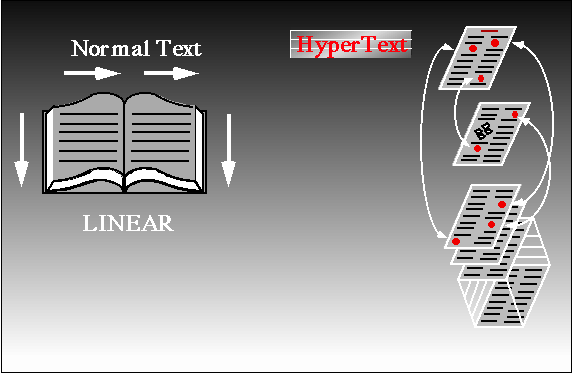Before diving into the topic, it is important to understand the keywords thoroughly so that there will no misunderstanding on the essay question.
What is media? Media can be define as mass communication. According to Business Dictionary, it includes every broadcasting and narrowcasting medium such as newspapers, magazines, TV, radio, billboards, direct mail, telephone, fax (old media) and internet (new media).
Traditional media is somewhat as important as new media though it is not as popular during this digital age, it is still being used and targeted to specific audiences. For example, there are still book readers who would love to collect books instead of downloading e-books, newspaper readers who reads and save some articles that are meaningful to them and magazine readers who collects magazine issues.
The use of traditional media are just being used differently; being used as inter-connectors to the new media. This implies that old media is not being replace by new media but "new technology simply re-mediating the old".
New media is well-known as digital media. Digitisation has made exchange of vast input of data seemingly rapid without the concern of the physical size of the silicon chip. (Lister et al. 2003:17) This makes compiling information, infinite and easily accessible.
Interactivity is a notion of ‘exchange’, ‘interplay’, ‘mutual influence’. ( Jäckel ,1995) Video games, rollovers, flash websites, input devices and hypertext for example is a form of interactivity. Therefore, with the rise of new media, the audiences becomes a 'user' rather than the 'viewer' of visual culture, film and TV or a 'reader' of literature. (Lister et al. 2003:21)
Traditional media is somewhat as important as new media though it is not as popular during this digital age, it is still being used and targeted to specific audiences. For example, there are still book readers who would love to collect books instead of downloading e-books, newspaper readers who reads and save some articles that are meaningful to them and magazine readers who collects magazine issues.
The use of traditional media are just being used differently; being used as inter-connectors to the new media. This implies that old media is not being replace by new media but "new technology simply re-mediating the old".
New Media
The key concepts to new media are ‘digitality, interactivity,
hypertextuality, dispersal, and virtuality.’
(Lister et al. 2003:13)
New media is well-known as digital media. Digitisation has made exchange of vast input of data seemingly rapid without the concern of the physical size of the silicon chip. (Lister et al. 2003:17) This makes compiling information, infinite and easily accessible.
Interactivity is a notion of ‘exchange’, ‘interplay’, ‘mutual influence’. ( Jäckel ,1995) Video games, rollovers, flash websites, input devices and hypertext for example is a form of interactivity. Therefore, with the rise of new media, the audiences becomes a 'user' rather than the 'viewer' of visual culture, film and TV or a 'reader' of literature. (Lister et al. 2003:21)
 Hypertexuality, a word widely used but rarely defined. It refers to ‘the networking function of new media that allows a large quantity of information to freely move around within a series of interconnected nodes in the network.’ Hypertext plays a vital role as it gives the user an easier access to other web links that connects with the information provided to the main page.
Hypertexuality, a word widely used but rarely defined. It refers to ‘the networking function of new media that allows a large quantity of information to freely move around within a series of interconnected nodes in the network.’ Hypertext plays a vital role as it gives the user an easier access to other web links that connects with the information provided to the main page. Dispersal in new media is the way in which ‘production and distribution of new media have become decentralised and highly individuated.’ (Lister et al. 2003:30) Blogspot and YouTube is one out of many dispersal websites. Both of this examples enable users to create content and at the same time consume information.
Virtuality also known as virtual reality is the ‘immersive, interactive experiences provided by new forms of image and simulation technology, created by or within communication networks.’(Lister et al. 2003:34) It is very popular as we are able to view things without being there physically and experience places and fantasies. VR glasses were also created to let users gain full experience. It can be built using a cardboard.
Media Convergence
Media convergence is defined as " an ongoing process that should not be viewed as a displacement of the old media, but rather as interaction between different media forms and platforms"(Jenkins, 2006).
Instead of comparing both old and new media being effective, collaborating both media will bring a whole new variety of interest to people.
The big question is . . . . . . . . .
Will traditional media be able to stand for itself in the near future of marketing?
In my opinion, traditional media will prolong but the effectiveness of it might wear down as in the near future, everything we own will be digitalised. (as for now half of the thing have already been digitalised) It will soon become an antique or a respected craft like how letterpress has become, today.
Book
Lister, M., Dovey, J., Giddings, S., Grant, I., Kelly, K. (2003) New Media: A Critical Introduction. Great Britain: Bell & Bain Ltd.
Website
Business Dictionary (n.d.) Media. Available at: http://www.businessdictionary.com/definition/media.html (Accessed, 27 May 2017)
Chen, G. M., Zhang,M. (2010) New Media And Cultural Identity In The Global Society. Available at: http://www.igi-global.com/chapter/new-media-cultural-identity-global/42819 (Accessed, 28 May 2017)
Jens F. Jensen (1998) 'Interactivity' : Tracking a New Concept in Media and Communication Studies. Available at: http://www.nordicom.gu.se/sites/default/files/kapitel-pdf/38_jensen.pdf
Jäckel, M. (1995) “Interaction. Sociological notes to a concept", Broadcasting and Television, no.4
Bibliography
Website
DeMers, J. (2016) Is Traditional Advertising Dead? Available at: https://www.forbes.com/sites/jaysondemers/2016/03/22/is-traditional-advertising-dead/#38c45e7c2925 (Accessed, 28 May 2017)
Kumar, A., Singh, S. (2011) New Media: Virtuality vs. Real Media. Available at: https://www.researchgate.net/publication/237151316_New_Media_Virtuality_Vs_Reality (Accessed, 28 May 2017)
Meister,D. (n.d.) Traditional Media in the Digital Age. Available at: http://www.religiousproductnews.com/articles/2012-July/eNewsletter/Traditional-Media-in-the-Digital-Age.html (Accessed, 28 May 2017)
Virtual Reality Society (n.d.) What Is Virtual Reality? Available at: https://www.vrs.org.uk/virtual-reality/what-is-virtual-reality.html (Accessed, 28 May 2017)

Comments
Post a Comment